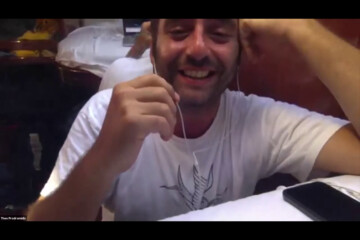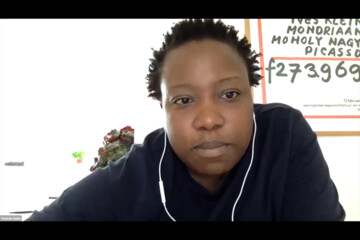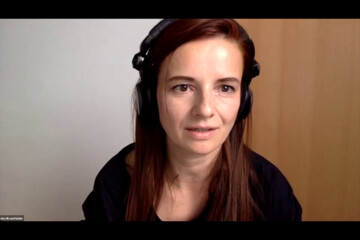There are at least 24 fully confirmed victims of the attack of the military and police forces of the Greek Junta that took place during 15 to 17 November 1973, in and around the Polytechnic School of Athens, while thousands of people were mobilising to prepare for the fall of the dictatorship.[1] Amongst many other unconfirmed cases and the thousands injured by the brutal attacks of the regime, we could find people of very different ages, backgrounds, and professions who were gathered in and around the school to form an active ground of uprising and emergence against the darkness and violence of the Regime of the Colonels. In recent years, however, we witness with horror a strategic attempt to revise the events and even the basics facts of the deaths and injuries that we collectively suffered in those days.
Since 1981, the 17 November has been a national holiday for all levels of education, and the commemorative events last for three days and take place around the old front gate of the Polytechnic School, standing as monument now, distorted after having been knocked down by a tank but becoming more colourful every year by the thousands of red carnations that are left on it. This year, I saw a person that was carrying in her jacket pocket a small bouquet of two or three yellow carnations, wrapped in aluminium foil, approaching the heaps of flowers and wreaths laid by officials, bending over in a frail manner and almost hiding it in there while a group of children from what the Greek state categorises as an intercultural school were waiting in line as a group, holding the red carnations with their → fists raised up and chanting in chorus one of the core slogans of the student uprising of 1973: “ψωμί, παιδεία, ελευθερία” (Bread, education, freedom).
Bread, paideia, freedom.
In modern Greek paideia stands for describing education, but as a word carries the heritage of its use as not only a vocational form of education, but rather as a lifelong and critical educational → process. According to Takis Fotopoulos, paideia can be conceived of as both civic schooling, involving “the development of citizens’ self-activity by using their very self-activity as a means of internalising the democratic institutions and the values consistent with them”, and as personal training involving “the development of the capacity to → learn rather than to teach particular things, so that individuals become autonomous, that is, capable of self-reflective activity and deliberation.”[2]
This two-fold operation produces a dynamic understanding of the role of education in the formation of citizenship, which may appear in tune with current policy strategy on education as recently articulated in the mapping of a European Education Area that states that “education is the foundation for personal fulfilment, employability and active, responsible citizenship”.[3] However, in reading through the strategic framework, and to no great surprise, all seven targets are related to “exposure to work-based learning”, “training” and so forth.
Arguably the structure that we have come to know as a school stands out formally when trying to imagine a space for education and citizenship. Pointing out that there is a real gap in articulation on what stands for active citizenship when institutions approach the complexity of education, I will use the space of this glossary to describe a structure that I feel was established on the basis of real and collective needs.
The most mobilising activation of a school that I have ever experienced, happened while I was trying to address a personal crisis in how to respond to the intense hardships that we have collectively endured in Greece. While searching for a different way to educate myself in response to these crises, I reached out and eventually became a volunteer at the Open School for Immigrants of Piraeus, active in → solidarity education since 2005, while in 2006 it adopted a new legal form as an association. In all these years of the school’s operation, thousands of immigrants of different nationalities and hundreds of solidarity volunteers have passed through the classrooms. A very important and formative moment of the school’s practice came in 2016, when volunteer teachers of the Open School came in contact with the refugee teachers who were staying inside the Skaramagas camp outside of Athens. Together, the community of the school and the people in the camp organised and brought to life a common educational program. Syrians, Afghans, and Kurds – all highly educated – became responsible for teaching the camp’s children in their mother tongue – Arabic, Kurdish, and Farsi. The first structure of solidarity within the camp was thus made by the refugees themselves.
The school is located in Kokkinia, a historic working class district in the north of the municipality of Piraeus, which since the beginning of the 20th century has welcomed a mass influx of refugees who were Armenian and Greek, almost all from the Smyrna region. It was also the site of the “Blockade of Kokkinia” in August 1944 when, in reprisals against an uprising led by the communist resistance, German soldiers executed hundreds of people and sent more to concentration camps. This history continues to inform the school’s → emancipatory and antifascist ideals, and is present in its annual activities. It is through these codes of operating that the expanded community of the school wants to open to students from all over the world.
The last years of lockdowns and social isolation due to the pandemic were very difficult with regard to maintaining the operation of the school and, most importantly, keeping together the communities that make up the school. There were restrictions that lead towards the dissolution of collective practices by enforcing isolation, the increased need for → care (→ care) but also increased difficulty in providing it, and the state making it even more difficult for people to be formally recognised in Greece, and thus we started to discuss again the very basic steps needed to deal with these issues. The necessity to start again initially seemed very difficult, but it provided a chance to break a certain repetition of operation. It was at this exact moment that we had the chance to → negotiate again amongst us both our notion of solidarity, as an open form without any pre-conceived points of closure, and our ability to approach instituting from the ground up. When the social conditions we faced seemed to be forcefully undetermined, it felt like there was a stronger possibility for us to start again.
In this opportunity to break away from our own institutionality in practice, I believe that a true process of paideia becomes apparent, that is the ability to continuously re-negotiate the form of our existing operations, even more so within a collective and emancipatory space, like the one we are arguing for through the school. By proposing our desires for an active and responsive rather than responsible citizenship, the following paradox – as expressed by Cornelius Castoriadis – becomes both apparent and productive: “Only an autonomous collectivity can shape autonomous individuals – and vice versa, whence the paradox, for ordinary logic. Here we have one aspect of this paradox: autonomy is the ability to call the given institution of society into question – and that institution itself must make you capable of calling it into question, primarily through education.”[4]





